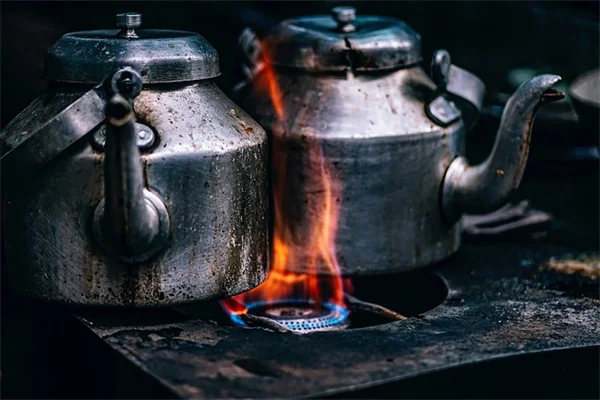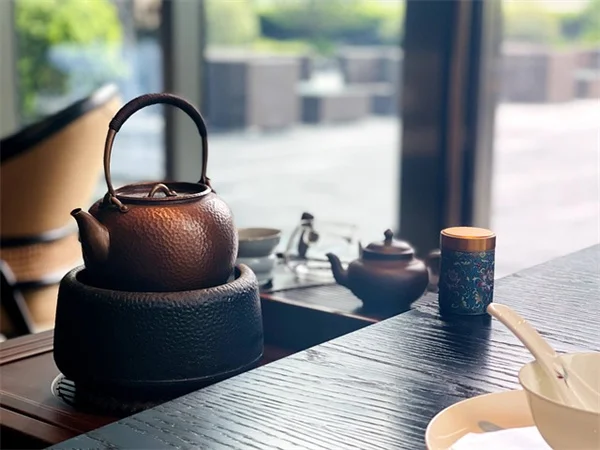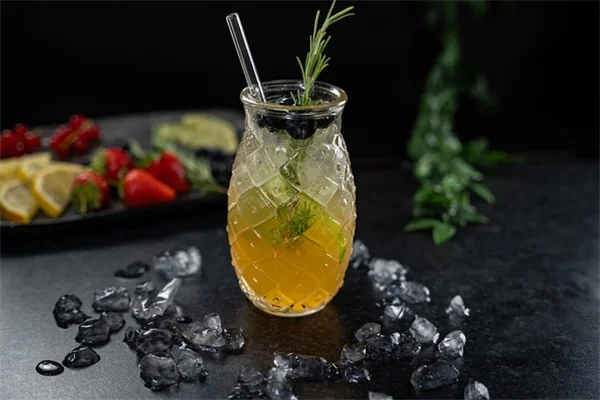Do Seeds Expire? Discover the Lifespan and Storage Secrets Every Gardener Should Know!
Do seeds expire? The answer is: not in the traditional sense! While seeds don’t expire like food, their viability does diminish over time. Think of them as little packets of potential that can last for years, given the right conditions. If you’re a gardener like me, you probably have those old seed packets sitting around, and you might be wondering if they’re still good to plant. The key takeaway here is that with proper storage, seeds can remain viable for much longer than you might expect! In this article, we’ll dive into the science behind seed longevity, share tips on testing old seeds, and explore the best ways to store and care for them. So, let’s get started on this journey of seed saving and discover how you can maximize your gardening success!
E.g. :Does Bug Spray Expire? Discover the Truth and Extend Its Lifespan!
- 1、🌱 The Truth About Seed Expiration: A Gardener’s Guide
- 2、🔬 The Seed Viability Test: Don’t Guess – Test!
- 3、🏆 Championship-Level Seed Storage
- 4、🚨 Red Flags: When to Toss Those Seeds
- 5、🌿 Special Cases: Unusual Seed Longevity
- 6、🔮 Future-Proofing Your Seed Collection
- 7、FAQs
🌱 The Truth About Seed Expiration: A Gardener’s Guide
🔍 What’s Really Happening When Seeds "Expire"?
Ever opened an old seed packet and wondered if those tiny time capsules still hold life? Seeds don’t expire like milk – they gradually lose their ability to sprout. Think of them like batteries: stored properly, they’ll keep their charge for years!
Here’s the science made simple: seeds contain a tiny plant embryo and food reserves. Over time, these reserves deplete, especially when exposed to heat, moisture, or light. But guess what? I’ve successfully grown tomatoes from 8-year-old seeds stored in my basement! Proper storage is everything.
⏳ How Long Do Seeds Actually Last?
Short answer: It depends wildly! Let me break it down with some real-world examples from my gardening journals:
| Seed Type | Average Lifespan | My Oldest Success |
|---|---|---|
| Tomatoes | 4-6 years | 8 years |
| Lettuce | 2-3 years | 5 years |
| Carrots | 3 years | 4 years |
See that lettuce entry? That batch surprised me by sprouting at 5 years when I’d completely written it off! Which brings me to...
 Photos provided by pixabay
Photos provided by pixabay
❓ Do All Seeds Expire at the Same Rate?
Absolutely not! Some seeds are like tortoises while others are hares. Onions and parsnips? They’re the divas of the seed world – often barely lasting a year. But beans and corn? Those hardy fellows can last a decade in good conditions.
Here’s a pro tip I learned the hard way: always test old seeds before planting season. Last spring I wasted two weeks waiting for expired zucchini seeds to sprout before realizing my mistake!
🔬 The Seed Viability Test: Don’t Guess – Test!
🧪 The Paper Towel Method (My Favorite!)
This is so easy a kid could do it (and mine have!):
- Dampen a paper towel
- Place 10 seeds on it
- Fold and tuck into a plastic bag
- Check after 3-7 days
Last month I tested some questionable basil seeds this way. Result? 6 out of 10 sprouted – good enough for my herb garden! Pro tip: Write the date and seed type on the bag unless you enjoy mystery experiments.
💧 The Float Test: Quick but Tricky
Many gardeners swear by this: toss seeds in water – sinkers are good, floaters are bad. But here’s the catch: some perfectly good seeds naturally float! I once nearly threw out viable milkweed seeds this way. Use this method with caution.
For what it’s worth, my neighbor Joe insists the float test works perfectly... right before complaining about his poor germination rates!
🏆 Championship-Level Seed Storage
 Photos provided by pixabay
Photos provided by pixabay
❓ Do All Seeds Expire at the Same Rate?
After ruining $50 worth of rare heirloom seeds, I became a storage fanatic. Here’s what works:
Fridge storage (35-40°F): Perfect for most seeds. I use mason jars with silica packets. My pepper seeds stored this way lasted 6 years!
Freezer storage: Only for very dry seeds in airtight containers. I once froze insufficiently dried seeds and turned them into expensive ice cubes. Learn from my mistake!
🧴 Container Showdown: What Really Works
Through trial and error (mostly error), I’ve tested every container imaginable:
- Mason jars: 10/10 for long-term storage
- Vacuum-sealed bags: Great but hard to reseal
- Original packets: Only good for 1 season
- Pill bottles: Surprisingly effective!
My current system? Baby food jars labeled with type and date – they stack perfectly in my fridge!
🚨 Red Flags: When to Toss Those Seeds
👀 Visual Warning Signs
Your seeds are sending you signals – learn to read them! Here’s what I look for:
Mold or mildew: Toss immediately! I learned this after trying to save fuzzy cucumber seeds (spoiler: they didn’t grow).
Extreme discoloration: Those vibrant green basil seeds now look like coffee grounds? Probably past their prime.
 Photos provided by pixabay
Photos provided by pixabay
❓ Do All Seeds Expire at the Same Rate?
Here’s my hard-earned wisdom: if less than half your test seeds sprout, either:
1) Plant twice as many, or
2) Buy fresh seeds
Last year I ignored this rule with my carrots. The result? Patchy rows and a very disappointed rabbit!
🌿 Special Cases: Unusual Seed Longevity
💎 The Methuselah Seeds
Some seeds defy all expectations. Archaeologists have sprouted 2,000-year-old date palm seeds! While your tomato seeds won’t last millennia, certain types are surprisingly resilient.
My most shocking success? A 15-year-old morning glory seed that sprouted after I’d given up hope! Nature constantly reminds us that life finds a way.
🌺 Flower Power: Ornamental Exceptions
While vegetable seeds get most attention, flowers have their own rules. For instance:
- Poppies: Often last just 1-2 years
- Sunflowers: Can remain viable for 5+ years
- Nasturtiums: Surprisingly durable!
My grandmother’s 8-year-old marigolds still bloom every summer – proof that sometimes, seeds carry more than just plants.
🔮 Future-Proofing Your Seed Collection
📅 The Rotation System That Works
After wasting too many expired seeds, I developed this simple system:
1) Label everything with purchase date
2) Store by expiration timeline
3) Test oldest seeds each winter
4) Replace anything under 30% germination
It takes 10 minutes annually and saves me countless headaches. Why didn’t I start this sooner?
🌍 The Bigger Picture: Seed Saving Matters
In our disposable culture, saving seeds connects us to generations of gardeners. Those heirloom tomato seeds from your neighbor? They might outlive both of you!
As my gardening mentor always says: "The best time to plant a seed was 20 years ago. The second best time is today." Even if that seed is a few years old, give it a chance – you might be surprised!
In wrapping up our deep dive into the world of seeds, it’s clear that understanding seed expiration is crucial for any gardener. Remember, seeds don’t just “expire” like food; instead, they gradually lose viability based on various factors like storage conditions and the type of seed. Whether you're nurturing a cherished heirloom variety or simply trying to get the most out of your gardening efforts, the insights shared here can really make a difference. I’ve shared my personal experiences, from successfully reviving 8-year-old tomato seeds to testing methods like the paper towel technique. You too can experiment and find what works best for your garden! 🌱If you've learned something today, don’t hesitate to put it into practice – test those old seeds before tossing them out! And hey, let’s keep the conversation going. I’d love to hear your experiences with seed storage and germination. Did you have a surprising success with old seeds? Drop a comment below, share your stories, or connect with me on social media! Your insights could inspire fellow gardeners. Together, we can cultivate a thriving community of green thumbs. Happy gardening! 🌼
E.g. :Do seeds expire? : r/gardening
FAQs
🔍 What are the signs that seeds are no longer viable?
When it comes to knowing if your seeds are still good, there are a few key visual warning signs to keep an eye out for. If you see any mold or mildew on the seeds, it's best to toss them immediately. I learned this the hard way after trying to salvage some fuzzy cucumber seeds that ended up being a total loss. Also, if you notice extreme discoloration—like vibrant green basil seeds turning a dull brown—it's likely that those seeds have passed their prime. Always trust your instincts and give your seeds a good inspection before planting!
⏳ How can I test old seeds for viability?
Testing old seeds is easier than you might think! One of my favorite methods is the paper towel test. Start by dampening a paper towel, then place about 10 seeds on it and fold it over. Tuck it into a plastic bag and check back in 3-7 days. This simple test gives you a clear indication of whether your seeds are still capable of sprouting. I've had great success using this method, and it saves you from wasting time in the garden with seeds that won't germinate!
📅 How should I store my seeds for the best results?
Proper storage is crucial if you want to maximize the lifespan of your seeds. I recommend using mason jars with silica packets to keep moisture at bay when storing seeds in the fridge at a temperature of 35-40°F. This method has worked wonders for my pepper seeds, which lasted six years! If you're considering freezing seeds, make sure they're very dry and stored in airtight containers, as I once made the mistake of freezing insufficiently dried seeds, which turned into ice cubes. Learn from my experience and store your seeds properly!
🌿 Do different seed types have different shelf lives?
Absolutely! Different seeds have varying lifespans based on their type. For example, I've found that tomato seeds typically last around 4-6 years, while lettuce seeds usually last just 2-3 years. It’s fascinating to see how some seeds, like beans and corn, can potentially last up to a decade if stored properly. Always check the specific lifespan for the seeds you have, and don't forget to test older seeds before planting to ensure a successful garden!
🚨 When should I throw out my seeds?
Knowing when to throw out your seeds can save you a lot of disappointment in the garden. A good rule of thumb is the 50% rule: if less than half of your test seeds sprout, it's time to either plant more seeds or buy new ones. I learned this the hard way with my carrots last year, leading to patchy rows and a very unhappy rabbit! Keep an eye on the germination rates, and don’t hesitate to replace those old seeds when needed.






